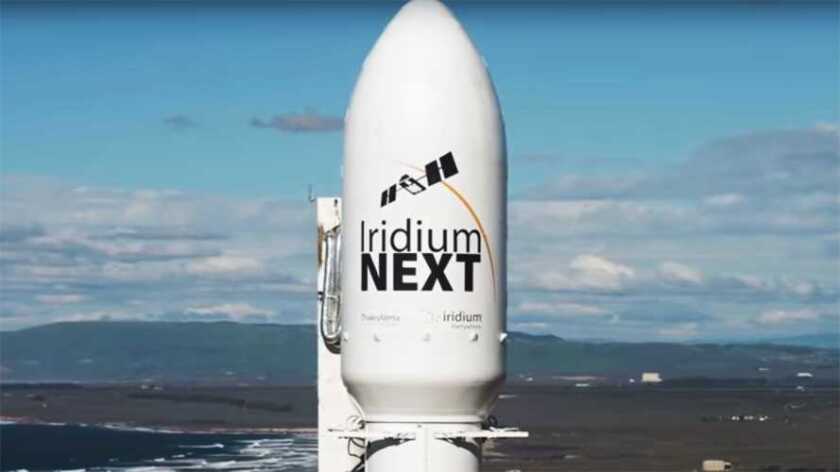After in-orbit testing of the latest batch, Iridium will be able to start new services on its satellites, which replace the first Iridium fleet that went into operation 20 years ago.
Iridium has given some details of the new services that it can offer now the whole fleet is in orbit. One is Iridium Certus, which will provide broadband to aircraft, ships and ground transport. The other is Aireon, an aircraft tracking and surveillance system.
With low-orbit satellites, Iridium covers the entire planet, including polar regions that are literally “white spaces” that are out of range of today’s geostationary services.
CEO Matt Desch, who joined the company in 2006 to lead its refinancing and reconstruction after the original business plan for the company vanished, said on Friday: “There are few words to describe what it feels like to complete a vision started many years ago when I joined the company and what it means for Iridium and our future.”
The original satellites, designed by Motorola to provide a worldwide mobile phone service, were never expected to last so long. They have been replaced over the past two years by new units, all launched by SpaceX.
Desch said: “Our gratitude to SpaceX for helping bring this new generation of satellites to orbit, so flawlessly every time is beyond words. However, for Iridium, we’re not quite across the finish line yet, as there is still some work to do to put these satellites into operation. Once that’s complete, our future will be in place.”
Financially the run of successful launches is good news for the reconstructed company. It predicted a “dramatic change in cash flows as construction capital expenses end and a decade or longer ‘capex holiday’ allows significant cash generation from existing and new services”.
However, just as the late-1990s Iridium business plan was torpedoed by the near-universal arrival of cellular mobile coverage, Iridium Next goes into full service just as a new generation of small satellites enter the market.
A report byFrost & Sullivan early this month said 89 small satellites were put into space in the third quarter of 2018 – rather more than Iridium now has in service.
The same report says that there will be 11,746 small satellites launched by 2030, creating a market worth $69 billion. That compares with around 360 geostationary satellites run by companies such as Eutelsat, Inmarsat, Intelsat and SES.
Iridium Next satellites weigh 660kg each, but the new ones forecast by Frost & Sullivan will be a few kilograms each.






